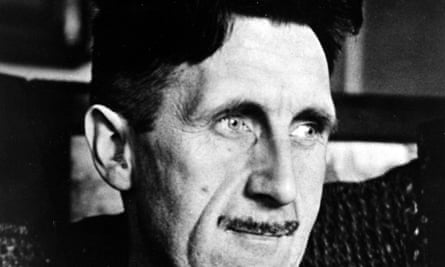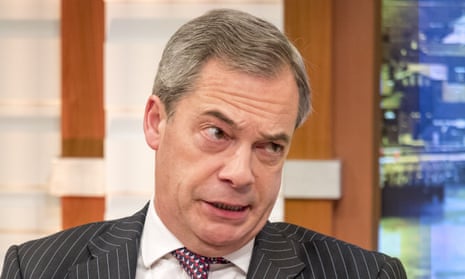As proved by Paris, Berlin, Brussels, and now Westminster, it is increasingly as much a part of the awful theatre of terrorism as the acts themselves: inside an hour or two of the news starting to break, figureheads of the so-called alt-right either reaching for their smartphones or sprinting to the nearest TV studio, and dispensing messages that chime perfectly with the intentions of the killers. They want rage, uncontrollable tension and intimations of the apocalypse to begin to embed in the societies they seek to attack. And guess what? The people who brought us Brexit, Trump and a thousand verbose radio spots and newspaper columns are only too happy to oblige.
With grinding inevitability, Nigel Farage appeared on Fox News on Wednesday night, and made his case with all the manic insistence of a Dalek, assisted by a large helping of what we now know as Alternative Facts. So, from the top: “What these politicians have done in the space of just 15 years may well affect the way we live in this country over the next 100 years … We’ve made some terrible mistakes in this country, and it really started with the election of Tony Blair back in 1997, who said he wanted to build a multicultural Britain. His government even said they sent out search parties to find immigrants from all over the world to come into Britain … The problem with multiculturalism is that it leads to divided communities. It’s quite different to multiracialism … I’m sorry to say that we have now a fifth column living inside these European countries.”
The same network also included a quickfire contribution from one Walid Phares – “Fox News national security and foreign policy expert” – who reckoned that the attack had proved that “one man can stop a city”, before Katie Hopkins went even further. “Great Britain is absolutely divided, more than at any time than in its past,” she said. “We are in fact a nation of ghettoes. I think liberals think multiculturalism means we all die together.” Not long after, the Ukip donor (or ex-donor – it is never quite clear) Arron Banks weighed in on Twitter, first associating the acts of a terrorist who would soon turn out to be British-born with “illegals”, and then carrying on regardless: “We have a huge Islamic problem courtesy of mass immigration … It’s a failed policy of mass immigration without integration that has destroyed communities … we have communities who hate our country and way of life.”

How strange that this hysterical, hyperventilating strain of politics emerged from the belly of English Conservatism. Give or take Margaret Thatcher’s rhetorical excesses, it has tended to be an essentially stoic, phlegmatic creed, usually at pains to insist that if Hitler failed to break the British spirit, nothing else will. But its bastard offspring are something else again: people seemingly both frightened and irate, whose every hour is spent warning of the imminent breakdown of civilisation, thanks to the forces let loose by liberalism, and the failure of too many people to stand in the way.
Of late, in the wake of Trump using this kind of hysteria to win power, it has bled out into British politics beyond the far-right fringe, not least when it comes to the way that some politicians and media outlets have framed Brexit, and its fallout. We all know the drill: judges are enemies of the people, Scots who desire independence are even worse, any denial of hard Brexit will spark riots – and in any case, some dread combination of liberals, “illegals” and perfidious MPs may sooner or later propel us towards doom. These visions are a hard-right version of the old leftwing belief in the inevitable final crisis of capitalism: proof, perhaps, that the most ideological kinds of political belief always contain a large element of sublimated religion, complete with a conviction that the arrival of utopia must necessarily be preceded by disaster.Within Toryism, Farage and co’s most obvious antecedent is Enoch Powell: a much more eloquent orator than any of these people, but another creature of the political right whose predictions of social breakdown failed to come true.

I point all this out not so much as an outraged leftie, but someone who has a love of their country just as strong as the patriotism these people bang on about, but who perhaps understands a little better that Britain – or, in this case, England – is not really the country they think it is. On this score, I would suggest they stop shouting for a minute, and go and read Orwell’s The Lion and the Unicorn: as concise a portrait of the often unlikely gentleness that still informs most British people’s view of the world as anyone has ever penned, light years from the kind of eternally angry, unhinged sensibility now being sold to whoever will buy – Fox, Breitbart, Trump and his circle – as an authentic version of our modern national character.
“No politician could rise to power by promising them conquests or military ‘glory’, no Hymn of Hate has ever made any appeal to them,” Orwell wrote. “In the last war the songs which the soldiers made up and sang of their own accord were not vengeful but humorous and mock-defeatist.” The essence of this stuff still rings true.
He goes on: “In England all the boasting and flag-wagging, the ‘Rule Britannia’ stuff, is done by small minorities. The patriotism of the common people is not vocal or even conscious.” Quite so, and we could add a recognition that even when bombs have exploded in our cities, very few people have sensed imminent social meltdown, or a call to the politics of racism and nastiness. I would only qualify Orwell’s words with the acknowledgement that, even if English level-headedness and fortitude have specific cultural expressions (“Mustn’t grumble” and all that), it is probably just another variety of the basic human mistrust of hate and fanaticism, and the innate understanding that whatever outrages shake people’s world, the sun still rises in the morning.
None of this, incidentally, is intended to suggest that what happened on Wednesday, or on 7 July 2005, or any of the cases in which the security services have frustrated terror plots, are not frightening beyond words, or that Islamist extremism is not an evil that has to be confronted, again and again. For sure, there are times when some politicians respond to terrorism with bromides about keeping calm and carrying on, and they sometimes fail to match the gravity of the moment. But those observations are a long way from the opportunistic cant we’ve heard this week. The actions of a lone murderer do not say anything about religious communities that comprise millions of people (many of whom, incidentally, were sufficiently integrated to vote for Brexit); whatever its tensions, Britain is really not a hair’s breadth away from some giant social meltdown.
Perhaps the most comical thing about these commodity-trading, insurance-selling, Trump-loving populists is how little time they spend complaining about the elements of our national life that really do threaten society’s basic functioning: their country’s appalling shortage of housing, its inhumane benefits system, its often shabby and unreliable public transport, or a system of care for elderly people that is failing fast. Such, perhaps, are subjects that will always be ignored by the kind of people who, as the comedian Stewart Lee said of Jeremy Clarkson, have outrageous, politically incorrect opinions for money. Crass nonsense brings in the fees; serious politics is always someone else’s burden.

